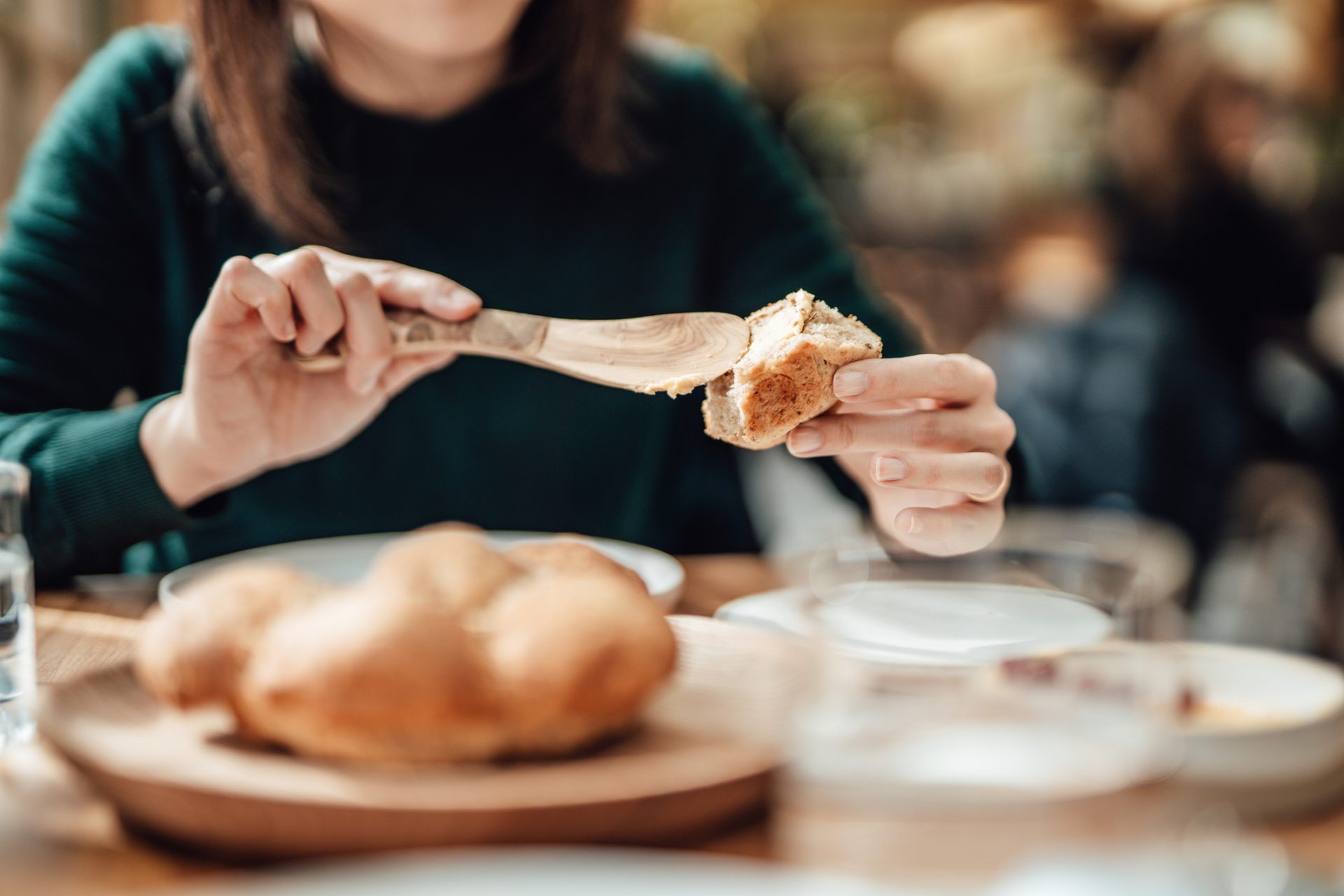We’re obsessed with all things gut these days, but how many of us actually know what we’re doing? Here, Dr Sammie Gill explains the most common mistakes people make when trying to improve digestive health.
If there’s one thing more of us have tried to do over the past year or two, it’s improve our gut health. From Dr Tim Spector telling us to drink more coffee or eat more plants to TikTokers recommending various, dubious ‘gut healing hacks’, we’re more desperate than ever to repair, support and protect our digestive microbiome.
But how many of us actually know what we’re doing when it comes to making gut-focused changes? It sounds easy enough to get add new veggies to every dish in a bid to eat your 30 different plants a week, but gut health goes beyond the food we consume. With that in mind, we’ve been chatting with Dr Sammie Gill, specialist gastroenterology dietitian and Symprove’s resident gut expert, about the most common things people get wrong when it comes to working on gut health.
You may also like
How to heal gut health: “I tried 8 ‘gut healing’ TikTok hacks – here’s how effective they were”
Following overly restrictive diets
“If you’re being overly restrictive, cutting out food groups or eating erratically, then your gut won’t like it,” Dr Gill tells Stylist. “Maintaining good gut health is all about adding things in: higher diversity = healthier gut microbiome.”
She recommends focusing on plants (fruits, vegetables, beans, legumes, nuts, seeds, wholegrains) that are packed with different types of fibre and health-promoting phytochemicals. Each community of microbes in your gut has different ‘preferences’ so keep them well-fed and nourished with a variety of plant-based foods.
It’s worth noting that this kind of additive approach – working out what you could add to your diet or regime rather than what needs to be taken away – is really at the crux of an anti-diet culture approach to health and nutrition.

Making gluten the enemy
Following on the restriction theme, one of the first things to go when we’re trying to deal with bloating is gluten. Even if you’ve been happily chowing down baguettes for 30 years, a spot of digestive trouble is often met with cutting out gluten.
But unless you have coeliac disease, gluten isn’t bad for you. In fact, Dr Gill explains, gluten is contained within wholegrains like rye, wheat and barley, which are actually really good for the gut.
You may also like
Is gluten bad for you? Why you shouldn't avoid gluten if you're not allergic, according to a nutritionist
“A very small number of people may have a form of gluten intolerance (known as non-coeliac gluten sensitivity or NCGS), but research has shown the vast majority of people who experience issues with gluten-containing foods (eg breads, pastas) are actually sensitive to the fructans in these foods, not the gluten.”
Fructans are short-chain carbohydrates and a type of FODMAP. Fructan intolerance can lead to symptoms like excess gas, abdominal bloating, blenching, constipation or diarrhoea and the best way to deal with it is to visit your GP. Many plants are high in fructans, including plums, onions, kidney beans and cashews, so it’s really important that you talk to a professional before trying a low-FODMAP diet.
Following pseudoscience online
Social media is full of non-science packaged up to sound reasonable, and nutrition is a particular target for pseudoscientists. The gut is a particular focus for many bogus, qualification-light wellness types who promote everything from cleanses to anti-seed oil fear.
Dr Gill calls gut health a “minefield of misinformation. It’s hard when all you’re trying to do is find a solution to your tummy troubles, but pinning hopes on miracle cures or magic bullet solutions is a waste of your time (and money). They simply don’t exist, and if it sounds too good to be true, then it probably is!
“If you’re struggling, seek out a specialist gastro dietitian who can support and advise.”
She advises checking out the British Dietetic Association (BDA), registered charities or the NHS website for approved experts and advice.

Focusing on food alone (rather than stress, sleep, etc)
“Beyond what we eat, there are so many other factors that can influence the health of your gut,” explains Dr Gill. A few lifestyle factors that could get in the way of good gut health include:
- Chronic stress
- Lack of physical activity
- Unnecessary medications
- Whether you have a pet (there’s some evidence to suggest that household pets influence our own gut microbiome)
- Poor sleep quality
- Smoking
- Drinking in excess
You may also like
Diaphragm, stress and gut health: is belly breathing the key to better digestion?
Not addressing how you eat
Of course, it’s not just what you eat that can make a difference. It’s also important to look at how you eat – the speed, frequency, environment. Dr Gill says: “We’re all guilty of wolfing down our food sometimes, often when we’re out and about, but try and ringfence time for eating, if you can.”
She suggests minimising distractions like smartphones or TV, and focusing on chewing each mouthful to help with digestion and increase enjoyment. After all, if you’ve gone to the trouble of making a meal, you want it to last longer than five minutes.
You may also like
Is the speed you eat at impacting your gut health? Here’s why eating too fast is making you bloated
Thinking that gut healthy living has to be expensive
Perhaps the biggest barrier to looking after gut health is the expense. Eating plenty of fruit and veg every week may sound really expensive, let alone trying to find a dietitian to work with. But Dr Gill insists that there are “countless gut-friendly foods that are also budget-friendly”.
“Head to the canned aisle when you’re next at the supermarket and pick up some cans of legumes: kidney beans, butter beans, lentils, chickpeas (and the rest!) are considerably cheaper than meat-based products and ideal for bulking out meals (think bolognese, chilli, lasagne…).
“Also, remember with fruit and veg – it doesn’t have to be fresh. Dried, frozen and canned (in juice) all count.”
Images: Getty
Source: Read Full Article
